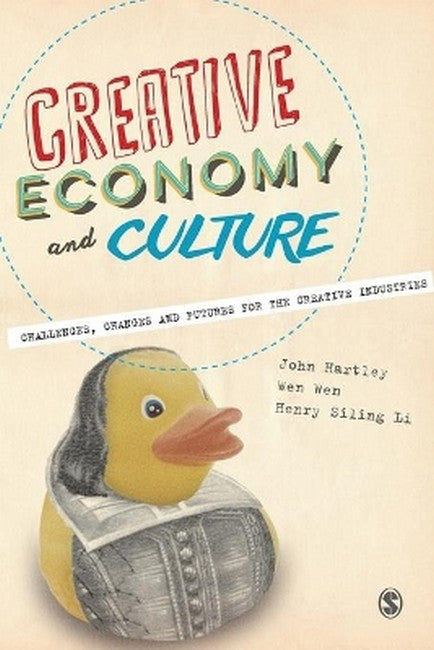John Hartley, AM (Order of Australia), is John Curtin Distinguished Professor at Curtin University Australia, and Professor of Journalism, Media and Cultural Studies at Cardiff University Wales. Recent books include: Cultural Science: A Natural History of Stories, Demes, Knowledge and Innovation (with Jason Potts, Bloomsbury, 2014); Key Concepts in Creative Industries (co-authored, SAGE, 2013); A Companion to New Media Dynamics (co-edited, Wiley-Blackwell, 2013); and Digital Futures for Cultural and Media Studies (Wiley-Blackwell, 2012). He is editor of the International Journal of Cultural Studies (SAGE) and publisher of Cultural Science Journal (online). He is a Fellow of the Australian Academy of Humanities and the International Communication Association, Honorary Professor of Zhejiang University of Media and Communications (Hangzhou), and Guest Researcher, Institute for Cultural Industries, Shenzhen University, China. Wen received her doctoral degree in creative industries from Queensland University of Technology, Brisbane, Australia in 2012. She is now a Lecturer and Director of the Project Development Department of the Institute for Cultural Industries, Shenzhen University, China. She was a visit-ing scholar at Curtin University, Australia in 2014. Her main research interests include creative scenes, urban culture and the cul-tural economy. She has published academic papers in the International Journal of Cultural Studies, International Journal of Cultural and Creative Industries and Cultural Science Journal. Henry is Senior Lecturer and Director of International at the School of Media, Culture and Creative Arts in the Faculty of Humanities, Curtin University. He has a PhD in creative industries from Queensland University of Technology and MA in simultaneous interpreting from Beijing Foreign Studies University. Henry worked at China Executive Leadership Academy Pudong for ten years and was Executive Director of its Centre for International Courses and Programs before joining Curtin University in 2013. His research covers social media, user productivity and young people in China and has been published in the Chinese Journal of Communication and Cultural Science Journal.
Request Academic Copy
Please copy the ISBN for submitting review copy form
Description
PART I: THE CHALLENGE Economy + Culture + Technology = Newness The Big Picture - Spheres Enveloping Spheres The Three Bigs - 'Everyone', 'Everything', 'Everywhere' The Creative Industries 'Moment' Back to First Principles Creative Industries to Creative Economy PART II: FORCES AND DYNAMICS OF CHANGE: THE THREE BIGS IN ACTION Technology Economy: Makers Economy: Scenes Geography: BRICS Geography: MINT, etc. PART III: FUTURE-FORMING (WITH THREE BUTS) 'Ceci Tuera Cela' The Three Buts Future-forming
This book explores culture as a mechanism and source of innovation. Using a new analytical lens, it re-examines the value of cultural and creative industries in individual, community and social development. China is entering a new stage of the Creative Economy. Innovation drives industrial restructuring, led by culture and creativity. How can China move towards becoming an innovative nation? The "Three Bigs" and "Three Buts" in this book may release the answers. -- Professor Li Wuwei In the late 1990s some operatives within the UK government discovered an important secret: the creative industries were driving economic growth. In this beautifully written book, Hartley, Wen and Li put a rocket under that argument, fuel it with some highly explosive Cultural Science, and launch it to a planetary scale. The result is a completely new vista on the economics of culture - what it is, how it powers innovation, and how it might best be governed. -- Jason Potts The most ambitious, thoughtful and internationally aware assessment to date of the creative economy. Defining creativity as the production of newness in complex, adaptive systems, the authors make the case that together the creative economy, along with other cultural outputs, represent a planet-wide innovation capability which marks an epochal turn in human affairs. -- Ian Hargreaves Creative Economy and Culture aims to develop a new conception of creative industries, a term largely associated with the aggregated economic activity of artists... The authors' very distributed understanding of creativity raises interesting questions, allows for the study of large-scale phenomena, and leaves open questions of precarity and devalued expertise. Hartley, Wen, and Li provide thought-provoking ideas about the nature of creativity that resonate in several ways with ongoing discussions in technical and professional communication. -- Stephen Carradini, North Carolina State University

